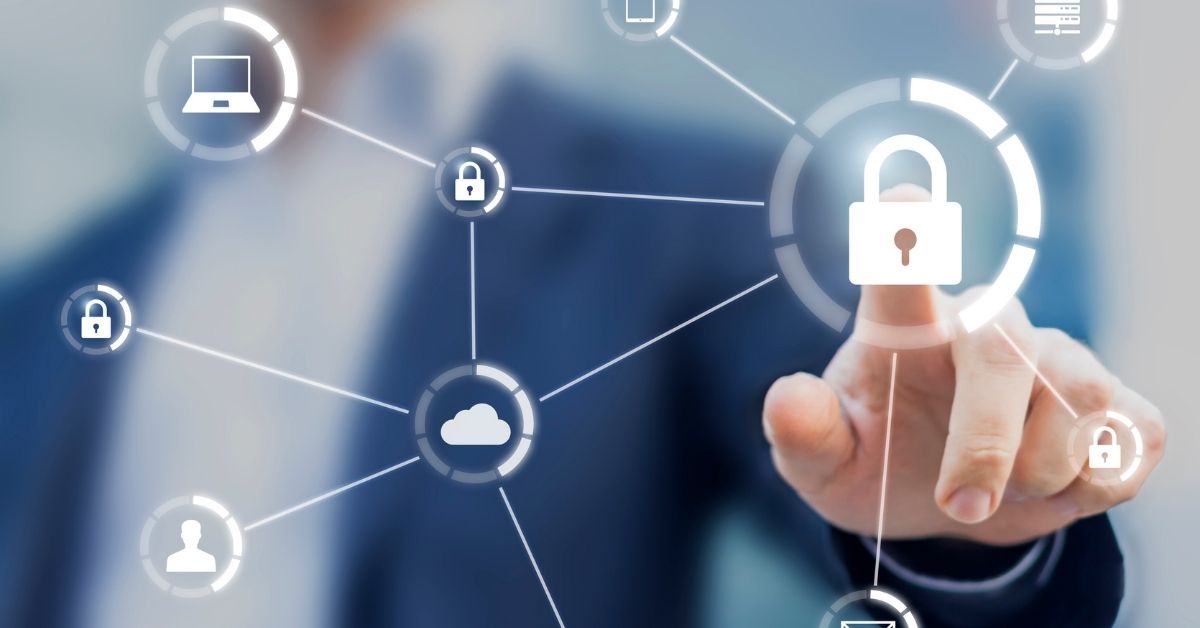Most of us do not sit and think about how secure our information is online, at least not on a daily basis. And when we do think about, most of us don’t fully understand all the nitty gritty details about cyber security. But here’s the deal, wishful thinking that you got it all under control doesn’t help you after you’ve been attacked. Knowing what you can do to avoid it is ultimately what’s going to help you when it comes to cyber security.
Did you know that over 4.1 billion data records were exposed in 2019? Yeah, that’s a lot of records. That means you are not untouchable. Read on for some cyber security tips you can implement right away for your business and personal life.
1. Create strong passwords
When it comes to creating a strong password, most people use personal data. And not only that, but use the same password over and over. I get it. It’s easier to remember a few passwords because you have multiple accounts that need passwords, so if need to lean on remembering them, at least you know right? Well, not so fast there.
Unfortunately, many people use personal information and use the password over and over. Some even just use ‘password’ or ‘123456’. Yes, they’re convenient and easy to remember. The problem is, they’re just as easy for others to guess. When creating a password there are few things to consider for it to be strong. Try these tips:
- Make the password long; it should be at least twelve characters.
- Include numbers, symbols, and a mix of upper- and lower-case letters.
- Don’t limit it to words you’d find in a dictionary. Mix it up. Consider using an acronym that’s meaningful to you and unknown to others.
- Don’t rely on substituting numbers or symbols for letters. For example, “N@t10nw1d3” is not a very safe password. Hackers know these tricks and easily get past them.
2. Use multifactor authentication
We’ve all seen it, the option to tie a cell phone or email as a second form of authentication in addition to the password. We highly encourage you to do that to protect yourself from cyber attacks. The password enables one level of security, but adding that extra step, the multifactor authentication, raises the amount of security considerably. Sometimes called two-factor authentication (or 2FA), this creates a channel that involves using two pieces of evidence of your identity. It’s a fairly painless way of adding some security, and it’s one of the top three ways cyber security experts protect their own information.
3. Never leave devices unattended
Yes, it seems like a no brainer. And your laptop was not cheap but consider you’re in a coffee shop working a way and you have to step in the restroom and you leave your devices for just a bit. If you really need to go, do not leave your laptop or phone unlocked. Make sure you and your employees keep your devices secure at all times by locking them even if you need to step away for just a bit.
4. Develop a disaster recovery plan
If you were to get hacked, be sure you are ready by adding an IT component to your organization’s emergency procedures. See this is another drill you practice and follow in the same way you would with any other disaster plan. This drill should include plans for data recovery and reputation management in case hackers gain access to your social media accounts. You might even want to consider insuring against a cyber disaster.
5. Do not click on suspicious links
Anyone have a friend or parent who has clicked on a link and oops, got a virus? Yes, this is one way they get you and it’s cruel to those who are super trusting. If a link looks suspicious, odds are it is not good. If it sounds too good to be true and you don’t recognize the sender, don’t click. Clicking on a malicious link could expose your device or network to a virus or even worse, give a cyber hacker access to your system. Here’s a few warning signs to be mindful of:
- Requests for personal information. Reputable organizations won’t do this in an initial communication.
- Strange email addresses. Your bank is not going to email you from a Yahoo or Gmail account. Business messages should come from business domains.
- Strange attachments. Don’t open attachments, unless you specifically requested them.
- Typos. You’d think a hacker mastermind would run spell check, but they don’t.
If you receive an email and have doubts about its authenticity, do a quick Google search. You will find out pretty quickly if this is a scam as others are usually pretty good at alerting the public in some way. If you are so daring, you can also reach out to the (supposed) sender directly through their website or phone number if it still appears this could be real. Do NOT contact them through the links or contact information in the email.
I hope you know by now we don’t want anything to happen to you or your business. If you want to sit down and discuss how we can keep your business safe from cybercriminals, call us at 712-277-2424 and schedule a meeting to discuss your security needs. Check back soon to learn about the other 5 habits of good cyber security that you should know.





